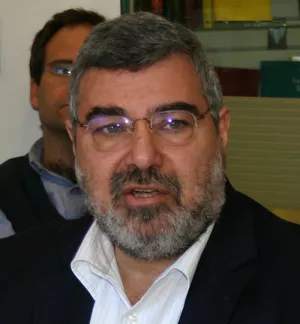"A fascinating political face-off this week in downtown Beirut will see the national dialogue called by Parliament Speaker Nabih Berri challenged publicly by demonstrations organized by the You Stink movement that rejects the dialogue as a waste of time. These two poles of the current national contestation reflect very different conceptions of political power and how the Lebanese government should operate.
We should not expect immediate verdicts on either the national dialogue or the You Stink activists. Much more time is needed to reveal if the demands of angry and fed-up citizens enjoy sufficient popular support to force the established old guard to change it frayed ways. If so, Lebanon is in for a really exciting and important challenge to the entrenched traditional leaders whose power comes from their share of parliamentary and cabinet seats and government jobs that are apportioned among Lebanon’s 18 different religious and ethnic groups. As a long-time observer of Lebanese politics, I find it hard to believe that the same political leaders who brought the government to its knees and brought Lebanon to its current embarrassing condition can suddenly change overnight and govern more diligently. The national dialogue looks, feels and smells a lot like the Palestinian-Israeli “peace process” that goes on for years, without any real change.
The important question of how much support the protest movements enjoy among the public cannot be answered by counting how many people demonstrate in downtown Beirut. By this criterion, the obedient forces of Hizbollah, Amal, Future Movement and Free Patriotic Movement will bury the citizen activists every time they take to the streets, as we have seen recently. This is why three new elements of the protest movement’s strategy strike me as significant.
The first is the use of tactics like symbolic gestures and nonviolent disruption of normal business operations. These include hunger strikes by a few activists, throwing garbage bags at the base of the government offices hill, and filling the Environment Ministry’s corridor with passive protesters. The second is the decision by the Union Coordination Committee coalition of labor and professional syndicates to go on strike Wednesday, coinciding with the national dialogue. Labor activism, including strikes and organizing protests, tipped the balance against the Egyptian and Tunisian regimes. The third, announced a few days ago by a new group called the People’s Court, will see criminal complaints filed in court against Environment Minister Mohammad Machnouk for committing an environmental disaster.
If such non-violent resistance tactics and others to come generate mass support and successfully reform the power structure and governance system, Lebanon could well provide an example for other Arab countries to follow — that elusive third way between instant revolution and prolonged civil war. I say this because Lebanese protesters are asking at heart for a validation and reconfiguration of their system of governance; they want the state to work efficiently and equitably and to provide all citizens with their very basic rights, including services like electricity, water, and garbage collection. Lebanese demand to be served equitably because this is their right as citizens of a state, rather than as members of a religion. Their vision of the role of the state and their rights as citizens is very different from how the establishment men in the national dialogue see the citizen and the state.
The protesters want the incumbency of ministers and other officials to emanate from their doing their job well, which ideally would see Lebanon institute a system of governance based on merit and accountability, rather than blood lines and religiosity. Such an accountable meritocracy would be noteworthy for other Arab states, where the efficient functioning of the state still usually reflects occasional surprise inspection visits to government offices by the caring monarch or benevolent great leader. It remains the case that the single most important reason why citizens revolted against their regimes in the last five years has been the corrupted state’s heavy-handed, uncaring, and inefficient behavior towards its own citizens.
Also relevant to other Arabs is how Lebanese citizens protest non-violently to change the way that political power is gained and wielded. Several hundred million Arabs who still strive to live in countries that respect them and their rights as citizens are watching Lebanon carefully to see if it successfully implements a third way of national rebirth that avoids both the sudden toppling of regimes as in Tunisia and Egypt, and prolonged war and chaos as in Syria, Libya, and Yemen.
These are ambitious and worthy goals, and tens of thousands of Lebanese have started to work for them in public. Many others in the region are watching to see if at least one Arab society has learned the important lessons of the 2011 Arab uprisings that have resulted in a range of painful conditions, including spreading warfare and rejuvenated police states."
Khouri, Rami. “Arabs watch as Lebanon navigates a crucial moment.” September 9, 2015



